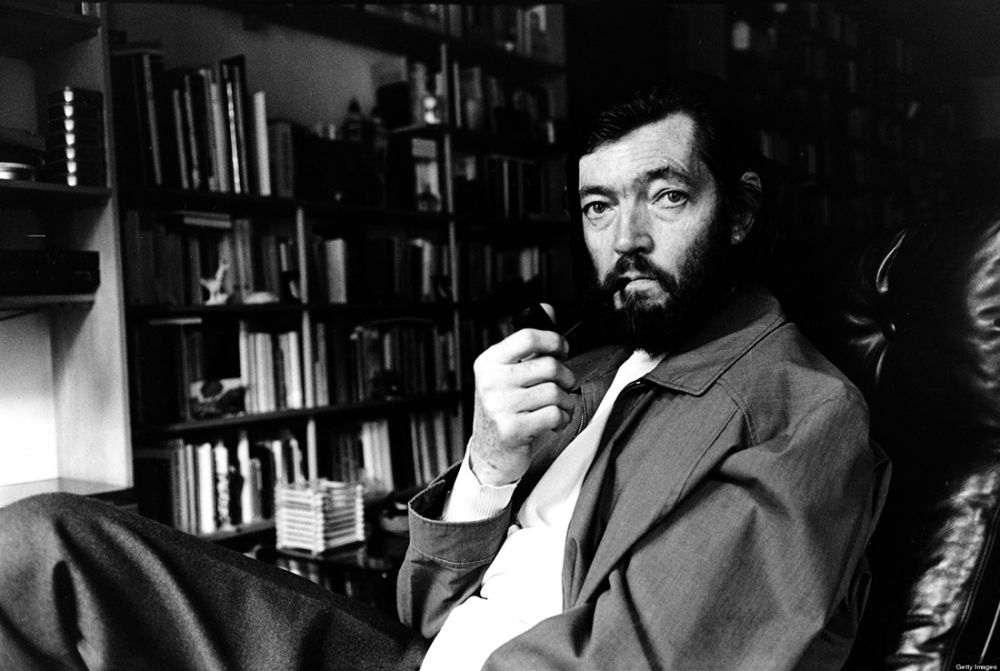Sometimes I think the only thing we did in school was read Julio Cortázar. I remember taking tests on “The Night Face Up” in each of my last three years of school, and countless were the times we read “Axolotl” and “The Continuity of Parks,” two short stories that the teachers considered ideal for filling out an hour and a half of class. This is not a complaint, since we were happy reading Cortázar: we recited the characteristics of the fantasy genre with automatic joy, and we repeated in chorus that for Cortázar the short story wins by knockout and the novel by points, and that there was a male reader and a female reader and all of that.
The tastes of my generation were shaped by Cortázar’s stories, and not even the xeroxed tests could divest his literature of that air of permanent contemporaneity. I remember how at sixteen, I convinced my dad to give me the six thousand pesos that Hopscotch cost, explaining that the book was “several books, but two in particular,” so that buying it was like buying two novels for three thousand pesos each, or even four books for fifteen hundred pesos each. I also remember the employee at the Ateneo bookshop who, when I was looking for Around the Day in Eighty Worlds, explained to me patiently, over and over, that the book was called Around the World in Eighty Days and that the author was Jules Verne, not Julio Cortázar.
Later, at university, Cortázar was the only writer who was undisputed. Dozens of wannabe Oliveiras and Magas milled about on the lawns at the University of Chile’s college of philosophy, while some professors endeavored to adopt Morelli’s speculative distance in their classes. Almost all seductions began with a pitiful rendition of chapter seven of Hopscotch (“I touch your lips, with a finger I touch the edge of your mouth … ”), which at that time was considered a stupendous text, and there were so many people speaking Gliglish (“amalating the noeme,” as they say) that it was hard to get a word in in Spanish.
I never liked the stories in Cronopios and Famas or A Certain Lucas: the fleeting, playful prose was lacking, I thought, in real humor. But on the other hand, I don’t think anyone could deny the greatness of stories like “House Taken Over,” “We Love Glenda So Much,” “The Pursuer,” and another twenty or thirty of Cortázar’s stories. Hopscotch, meanwhile, is still an astonishing book, although it’s true that sometimes we’re astonished that it has astonished us, because it can often sound old-fashioned and overwrought. But still, today, the novel is full of truly beautiful passages.
In a recent essay, the Argentine writer Fabián Casas recalls his first reading of Hopscotch (“it was all cryptic, promising, wonderful”) and his later disappointment (“the book started to seem naive, snobbish, and unbearable”). That is my generation’s experience: sooner rather than later we end up killing the father, even though he was a liberating and quite permissive dad. And it turns out that now we miss him, as Casas says at the end of his essay, in a happy, sentimental turn: “I want him to come back. I want us to have writers like him again: forthright, committed, beautiful, forever young, cultured, generous, loud-mouthed.”
I agree: bring back Cortázar. It’s a mysterious mechanism, the one that makes an admired writer become, suddenly, a dispensable legend. But literary fashions are almost never based on real readings or rereadings. Maybe now, when everyone drags his memory through the mud, we regret having denied him three times. Maybe we’re only just now ready to read Cortázar, to truly read him.
—Translated from the Spanish by Megan McDowell.
Alejandro Zambra is a Chilean writer who lives in Mexico City. His books include Multiple Choiceand My Documents, among others.
Megan McDowell is a literary translator from Kentucky who lives in Santiago, Chile.
Excerpted from Not to Read, by Alejandro Zambra, translated by Megan McDowell, published by Fitzcarraldo Editions.
from The Paris Review https://ift.tt/2AfmtSU

Comments
Post a Comment